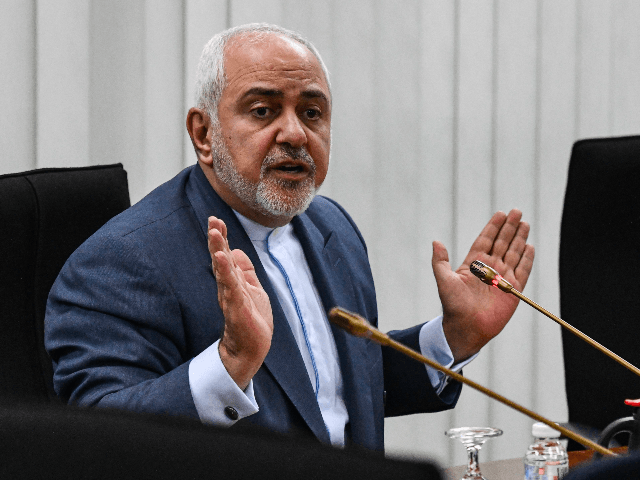Iran’s foreign minister on Tuesday said Israel made a “very bad gamble” with its alleged cyberattack cutting the power at the Natanz nuclear plant, adding the sabotage would only strengthen Tehran’s position in renegotiating the 2015 JCPOA nuclear deal with world powers.
“If [Israel] thought that they can stop Iran from following up on lifting sanctions from the Iranian people, then they made a very bad gamble,” Mohammad Javad Zarif told a joint press conference with his Russian counterpart, Sergey Lavrov, in Tehran.
“What they did in Natanz, they thought it would reduce Iran’s leverage,” he said, referencing ongoing talks in Vienna aimed at bringing the US back into the deal.
“On the contrary, it will strengthen our position,” he said. “It makes it possible for Iran to legally, legitimately do what it needs in order to compensate for this terrorist stupidity, use any capacity it has at Natanz.”
“The United States should know that neither sanctions nor sabotage will give them the means to negotiate, and that they will only make the situation more difficult for them,” Zarif said.
A day earlier, Zarif said Israel was behind the cyberattack and vowed his country would “take revenge on the Zionists.”
Hours before the attack on Saturday, Iranian President Hassan Rouhani ordered the operation of IR-6 and IR-5 centrifuges — advanced centrifuges that are capable of enriching uranium at far greater speeds.
Zarif vowed Iran would install even more sophisticated centrifuges following the attack. “I assure you that in near future, the Natanz site will move forward with more advanced centrifuges.”
U.S. intelligence told the New York Times the attack caused an explosion that destroyed the power supply to the centrifuges manufacturing enriched uranium, and it would take at least nine months to restore production. The sources added Israel was likely behind the attack.
Israel has not commented on the matter.
Shortly after the incident, Iran’s envoy to the ongoing nuclear talks in Vienna, Abbas Araqji, said “we have no intention of stopping the enriching of uranium to 20 percent and the use of advanced centrifuges.”
Israel is said to have been behind several unexplained explosions at the Natanz facility that were similarly estimated to have set back Iran’s nuclear program several months.

COMMENTS
Please let us know if you're having issues with commenting.